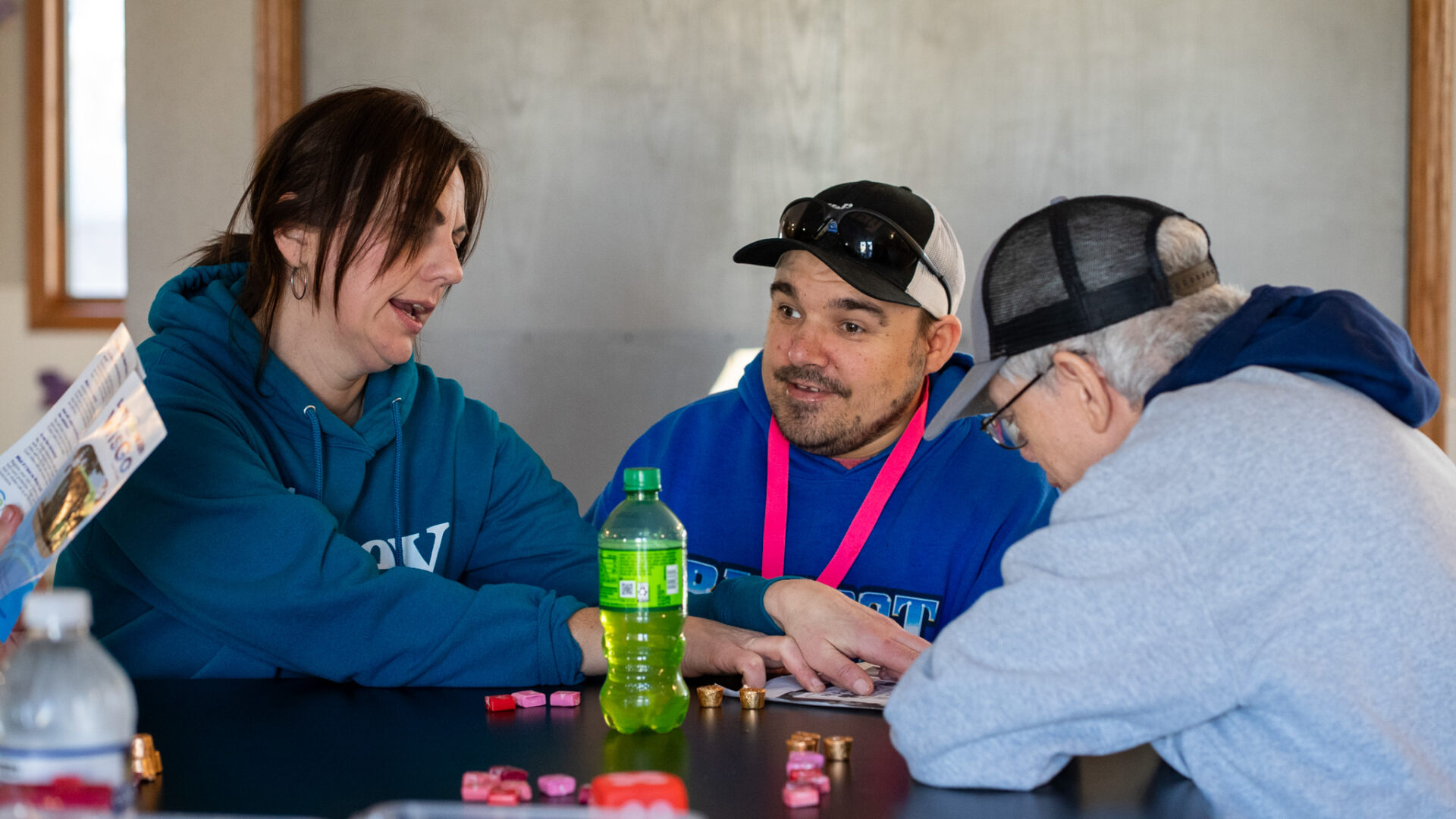For individuals with intellectual or developmental disabilities, having a supported decision-maker they can trust is key to living a fulfilled life. Someone’s capacity to make decisions may be impaired if they suffer from mental illness, brain injury, dementia, or other related conditions, or if they have intellectual or developmental disabilities.
Supported decision-makers can be friends, family members, or advisors. They earn their title for their role in helping people with disabilities make decisions. “Having trusted adults helping them with their decisions ensures that adults with disabilities aren’t taken advantage of,” says Andrew Johnson, a case manager with Community Care, Inc. in Wisconsin.
Having a supported decision-maker does not replace guardianship or power of attorney options; rather, it is an additional option for individuals and their families seeking assistance with life’s many decisions.
Guardian vs. Supported Decision-Maker
It’s important to note that appointing a supported decision-maker is not the same as guardianship. The main difference? A guardian makes major life decisions for a person—from personal health care to finance, and even whether or not to raise a family. A supported decision-maker, on the other hand, comes in once the person has made their decision and helps them accomplish their goal.
For instance, if an adult with disabilities decides they want to move into a house with their friends, the guardian may say that is not a good idea and the case is closed. However, if an adult with disabilities tells their S.D.M. they want to move into a house with their friends, the S.D.M. may start by asking what the person can afford and put a plan in place to help them move.
While individuals with disabilities may need assistance when making decisions about living situations, financial matters, and healthcare, they do not necessarily need a guardian. However, it is estimated that at least 1.5 million adults are under guardianship—a figure that could skyrocket by 2030. A person under guardianship does not have the right to make their own decisions, whereas supported decision-making fosters independence and autonomy by empowering individuals to make their own informed choices.
Supported Decision-Making in Wisconsin: It’s the Law
Each country has their own laws regarding guardianship; and in the United States and Canada, guardianship and supported decision-making laws vary by state and province. Because of these differences in laws, the state in which an individual with a disability lives can impact their whole life.
In 2018, Governor Walker signed Supported Decision-Making into Law in Wisconsin. These official regulations provide individuals with disabilities an alternative to more restrictive guardianship. Wisconsin was among the first states to enact this type of legislation, among Texas, Delaware, Alaska, and the District of Columbia. In 2019, Indiana, North Dakota, Nevada, and Rhode Island followed suit.
Wisconsin legislature defines supported decision-making as: “a process of supporting and accommodating an adult with a functional impairment to enable the adult to make life decisions, including decisions related to where the adult wants to live, the services, supports, and medical care the adult wants to receive, whom the adult wants to live with, and where the adult wants to work, without impeding the self-determination of the adult.”
Benefits of supported decision-making laws include the ability to specify duties and boundaries of S.D.M.s, so they don’t make decisions for the individual but rather help the individual to make their own informed decisions; and the ability to require third party (healthcare, financial) institutions to honor S.D.M. agreements.
When to Use Supported Decision-Making
Supported decision-making is less restrictive than guardianship. Andrew Johnson recommends that individuals with disabilities should make their own decisions regarding what kinds of activities they want to participate in, who they want to hang out with, and what they can eat or drink.
Examples of Supported Decision-Making Situations:
- Healthcare
- Financial affairs
- Employment
- Legal paperwork
While the S.D.M. helps the individual work through their challenges and discover new opportunities, at the end of the day, it is the individual with disabilities who makes the final decision.
For more information regarding support decision-making in Wisconsin, visit The Arc, an online resource for people with intellectual and developmental disabilities.
Supported Decision-Making Agreement
When choosing a S.D.M., ensure that this person is honest, knowledgeable, and always has the individual’s best interests at heart. The S.D.M. should be respectful of the person’s will or preferences, and honor the choices made by the individual.
Once it’s been decided who this person – or these people – will be, the next step is to complete a Supported Decision-Maker Agreement Form. This form provides assurance to medical, financial, legal, and other critical industry professionals that an individual’s decisions are informed and supported. Without this formal documentation, the industry professional may not deem a person to have the “capacity” to make their own choice.
It is not uncommon for individuals to have multiple S.D.M.s, as each S.D.M. may provide support in different areas, or they may work together to better provide support. Having more than one supporter keeps S.D.M.s in check and helps ensure that no one supporter is taking advantage of the individual.
Are you ready to take this important step? The Wisconsin Board for People with Developmental Disabilities (W.B.P.D.D.) offers a toolkit for getting started with naming your supported decision-maker.
Build Decision-Making Skills with Covey
Supported decision-making has many positive impacts for individuals with disabilities, including greater self-confidence and self-respect, increased autonomy, and higher overall happiness.
At Covey, a non-profit serving individuals with disabilities and their families in Oshkosh and Appleton, Wisconsin, we create opportunities that foster personal growth. Through individualized programs that teach daily living skills and skill development, Covey clients lead lives of greater independence.
Connect with us today to learn more about our virtual and in-person skill-building programs!

